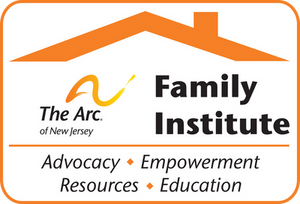Ashley Taylor is a freelance writer, photographer, and advocate for people with disabilities. She created DisabledParents.org to provide information and resources to other parents with disabilities.
Having your first baby is simultaneously the most exciting and most terrifying thing you’ve ever done. And when you have a disability, it’s also something that raises a lot of questions. You may be wondering how you’ll navigate routine care tasks and manage your own needs while also caring for a baby. While there’s no one-size-fits-all solution to parenting with a disability, these tips will set you on the right path.
Get Your House Ready. Nesting before your baby comes is such an exciting time. You want everything just right — the nursery painted and furnished, the house cleaned, and baby stuff organized. But for parents with a disability, the to-do list doesn’t stop there. You also need to make your home as accessible as possible to prevent accidents and make routine tasks easier while caring for a baby.
Accessibility needs vary depending on the nature of a disability. Start by identifying the things that currently give you trouble — do you amble awkwardly up the front steps, struggle with dim lighting, or constantly slip on the bathroom floor? Inconveniences like these become more precarious when you’re toting an infant.
Next, go through your routines while carrying something the approximate size and weight of an infant. (Not sure what to use as a practice baby? This DIY design from Babywearing International is the perfect solution.) This gives you a better idea of how you can accommodate childcare needs. For example, parents who use wheelchairs may discover they need somewhere to set their baby down while using the toilet or prepping dinner. A parent with an unsteady gait might realize that carrying an infant offsets their balance and decide to add handrails and slip-resistant flooring throughout the house. Whatever home modifications you need, don’t wait until your nesting instincts kick in to start implementing them. Home renovations take time, and it’s important that everything is ready before your baby is born.
Skip the Baby Registry. If your disability is physical, popular baby equipment might not work for you. So while your friends might have great recommendations for gear, you can’t just throw things on a registry and forget about it. It’s important that you find equipment that suits your abilities, otherwise you’ll end up facing lots of unnecessary frustration and expense.
Ask friends if you can trial their cribs, car seats, wraps, and other baby care items to see what works best for you. If you don’t have many friends with children, reach out to local parenting groups. Unfortunately, sometimes it’s not possible to find the perfect product off the shelf. If you can’t find something that meets your needs, consider having it specially fabricated. As New Mobility points out, cribs are a common struggle for parents in wheelchairs. Where possible, learn from the experiences of other parents with disabilities like yours.
Don’t Forget Self-Care. No matter how much you adore your bundle of joy, the first months with a newborn will test your strength and your relationship. In many ways, having a baby means putting another human’s needs above your own. However, you also need to realize that you can’t give your child your best if you’re not taking care of yourself.
As much as you want to dote on your baby, you can’t afford to neglect sleep, nutrition, health, and other forms of self-care. If your disability requires self-management routines, do what you must to maintain them after baby comes home. That may mean asking a loved one to help out or hiring child care during part of the day. Needing help doesn’t mean you’re failing as a parent; on the contrary, it shows an understanding that your family functions best when everyone is cared for. If you’re not ready to let someone else help with your infant, consider hiring housekeeping help, a dog walker, or another service that relieves some of your burden.
A disability certainly adds challenges for first-time parents. However, with creativity and planning ahead, you can find solutions that let you parent your child fully. If you’re struggling to find the best solutions for you, consider working with an occupational therapist before your baby arrives.
